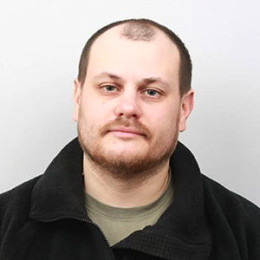 Security outfit Kaspersky’s woes are becoming more intense after a manager in charge of investigating its hacking attacks has been arrested for treason.
Security outfit Kaspersky’s woes are becoming more intense after a manager in charge of investigating its hacking attacks has been arrested for treason.
Ruslan Stoyanov, head of its computer incidents investigations unit, was arrested along with a senior Russian FSB intelligence officer and they both face charges of treason.
Kaspersky’s spokeswoman, Maria Shirokova, insisted in a statement that Stoyanov’s arrest “has nothing to do with Kaspersky Lab and its operations”. She said the company has no details of the charges Stoyanov faces, but added that the investigation dates back to the time before Stoyanov was hired by Kaspersky.
US intelligence agencies have accused Russia of meddling in the its presidential election through hacking, to help Donald Trump win the vote, claims that Russia has rejected. US and EU officials also have accused Russia of hacking other Western institutions and voiced concern that Russia may try to influence this year’s elections in Germany, France and the Netherlands. It wasn’t immediately clear if the arrests are somehow linked to these allegations.
The FSB’s press office wasn’t immediately available for comment and Kremlin spokesman Dmitry Peskov also said nothing.
Andrei Soldatov, who has studied the internet and Russian security services for more than a decade, called the arrest of the Kaspersky manager “unprecedented”.
Meanwhile there have been claims that Kaspersky is controlled by Russian spies who have used it to access secret files in at least one British company. A whistleblower has now claimed that the firm is controlled by Russian intelligence and that it has been able to access confidential files belonging to the British company, Gamma Group. Kaspersky denies the claims.
According to The Times, a former Kaspersky senior manager claimed that there were once two factions within the firm – one independent and another close to Russian intelligence.
But he claimed that the faction linked to Russia’s FSB agency eventually seized control after the kidnap of Ivan Kaspersky, the son of founder Eugene Kaspersky.
The whistleblower told Latvian news website Meduza that Mr Kaspersky ‘changed his business tactics’ after the incident seven years ago and ‘got rid of American investors and the majority of senior expats’.
The same source also claimed that he watched as Kaspersky staff showed how they could access data by gaining access to computers belonging to Gamma Group, which sells surveillance software to governments and police forces around the world.
Anti-virus software such as those created by Kaspersky can become a tool for espionage because it scans and can access all files in a computer or network.





